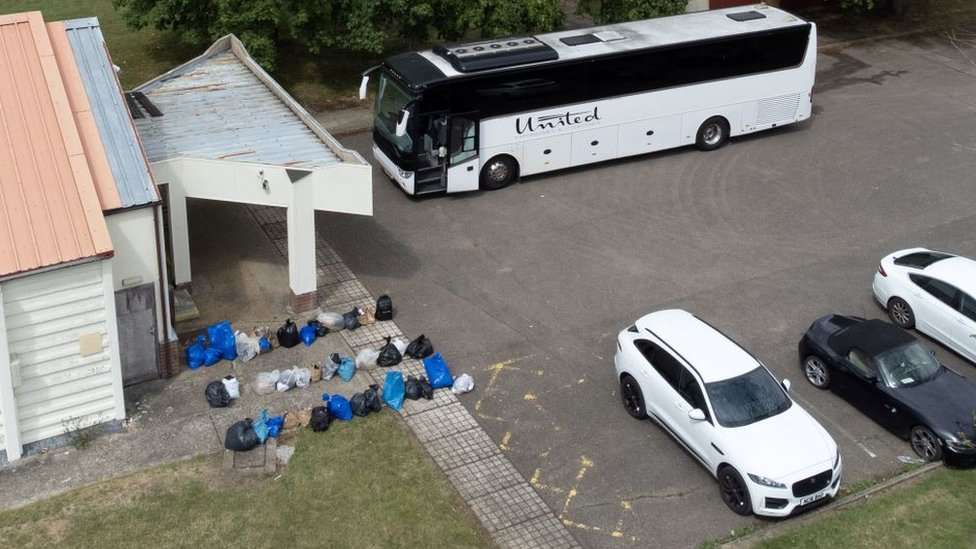Following the relocation of individuals to other sites, the high court has rejected the government’s intentions to house thousands of asylum seekers in two military facilities. However, the British Home Office has already begun the relocation to the facilities.
The Tory government has been sued by the West Lindsey District Council over its plans to transfer asylum seekers to the Royal Air Force base, Scampton site in Lincolnshire. Also a citizen, Gabriel Clarke-Holland, and Braintree District Council are suing the administration over relocating asylum seekers to the Wethersfield Airbase in north Essex.

The two councils and Clarke-Holland filed the high court action against the Home Secretary and the Leveling Up Secretary, including an appeal hearing to request authorization for judicial review.
Officials from the Home Office have disclosed that, the capacity at the Bibby Stockholm barge is big to accommodate extra 4,200 bed, and will be docked in Dorset, and at Scampton, in addition to all single men of the 1,700 asylum seekers, that wish to relocate to Wethersfield.

The Home Office Director for Asylum Accommodation, Cheryl Avery disclosed that, by autumn, the Wethersfield facility would be “fully functional,” and that, by the time refugees would be arriving, the Office will be increasing the capacity of the facility.
On-site amenities include a medical practitioner’s office, apartment buildings, a dining facility with three meals per day, a multi-faith center, and recreation centers including a gymnasium and an indoor basketball court.
“We do have a shuttle bus facility that will take the asylum seekers on site out to the local area, but it’s all managed really carefully and that’s done on a regular basis as well.”
Cheryl Avery,Home Office Director for Asylum Accommodation.
Additionally, she said that no one would stay at the location for more than nine months.

In the high court, the three claimants contended that, the Home Secretary Suella Braverman has been abusing the authority granted her, by imposing the plans without conducting sufficient preparation discussions.
On the other hand, in order to determine if the government can erect “potentially unsuitable and harmful military-style accommodation for asylum seekers, without any consultation, in remote areas of the UK, by using emergency powers to bypass planning regulations,” attorneys for Clarke-Holland indicated that, the judicial review plea was of utmost importance to communities throughout the UK and asylum seekers.
Presiding over the suit, Mrs. Justice Thornton DBE listened to the arguments made by the three claimants, to determine if the suit merits a full court hearing.
However, the claimants argued that, the government should desist from instituting a Q class rule which permits the use of any site for up to 12 months in case of an emergency, with a planning permission.
Additionally, the claimants believe that, the government plans to use the facilities for more than the 12-month. They suggested that, planning authorization as well as environmental impact assessment screening, must be sought for by ministers.

The government however, rejected the assertions of the claimants, in written submissions it provided to the high court, stating that, if a longer-term usage was necessary, it might be requested later on.
According to the Home Office, an “emergency” might be described as anything that happens “over time or is of a continuing nature,” rather than as a single occurrence.
Moreover, an estimated 120,000 to 140,000 asylum seekers potentially enter the UK each year, according to officials, and also noted that there is a “pressing need for contingency accommodation for destitute asylum seekers.” Officials from the Home Office requested the judge to reject the three allegations.























